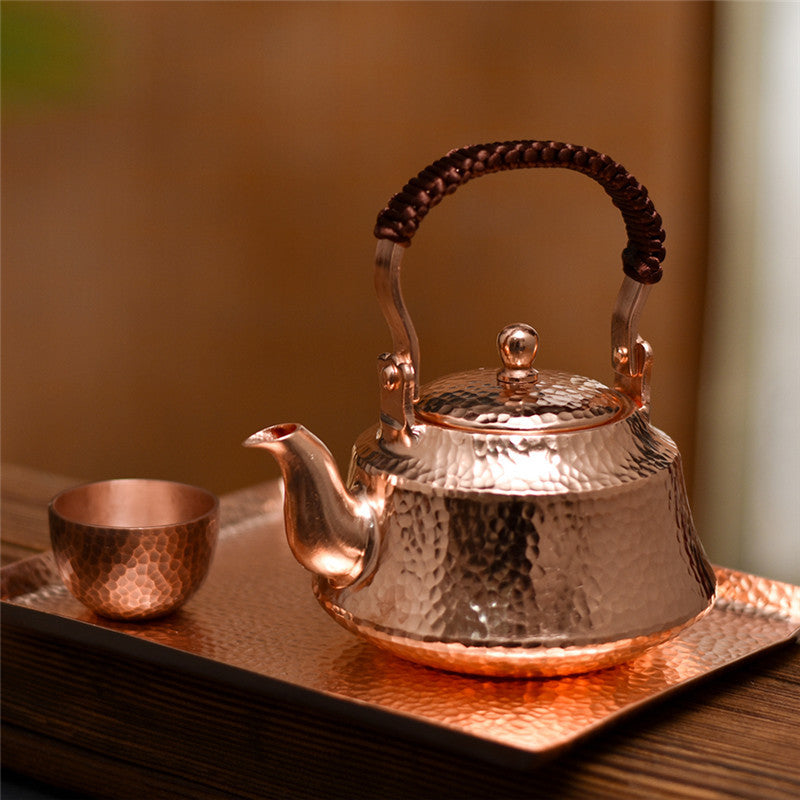
Why a Handmade Copper Teapot Is (Almost) Essential for Tea Lovers
Share
Why a Handmade Copper Teapot Is (Almost) Essential for Tea Lovers
First of all: teapot, kettle or both?
Many copper pieces called “teapots” are actually kettles (water heaters). We distinguish:
- Copper kettle: heats water on fire/electric (sometimes not induction).
- Lined copper teapot: for brewing tea. Check the manufacturer's intended use.
1) The magic of copper: conductivity & control
Copper is one of the best thermal conductors, providing:
- Fast and even heating.
- Precise temperature control, crucial for delicate teas.
- Moderate inertia to control extraction.
2) Handmade crafts: more than an object, a companion
A hand-hammered teapot/kettle offers:
- Superior structural rigidity.
- Precise, drip-free pouring.
- Repairability: designed to last for decades.
3) Interior lining: safety & taste
Choose between:
- Tin: neutral in taste, gentle with tea.
- Stainless steel: robust and easy to live with.
4) Choose: 6 simple criteria
Consider:
- Capacity: 0.8–1.2 L for 1–3 people.
- Thickness: ≥ 0.8–1.0 mm for stable heating.
- Lining: tin or stainless steel according to your preferences.
- Spout: clean, drip-free jet.
- Handle: Comfortable and balanced grip.
- Fire compatibility: check specifications.
5) Maintenance (easy, I promise)
For simple maintenance:
- Rinse with warm water, avoid harsh detergents.
- Use a mild polish for the exterior.
- Never leave empty on the stove.
6) Copper vs. steel vs. cast iron: when to prefer what?
Each material has its advantages:
- Copper: speed and precision.
- Stainless steel: durable and easy to maintain.
- Cast iron: excellent inertia, ideal for black teas.
7) Safety & Common Sense
For safe use:
- Use compliant parts.
- Avoid acidic infusions in an unlined teapot.
- Do not boil dry.
Shoppable block
FAQ
Does copper change the taste? With a lining, the taste remains neutral.
Is it induction compatible? Only if the part has a ferromagnetic base.
What if the tin lining wears out? Have it re-tinned by a professional.
